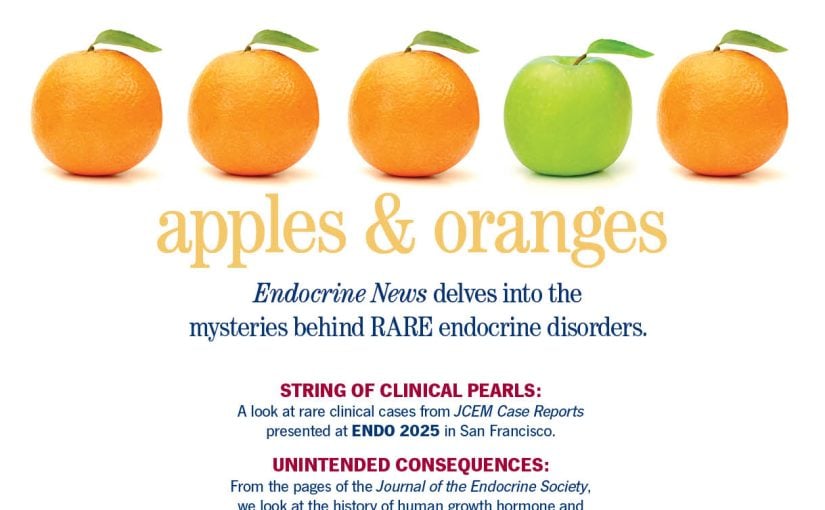Endocrine Society, ESE Publish Joint Guideline on Glucocorticoid-Induced Adrenal Insufficiency
 Honored by both the Endocrine Society and the European Society of Endocrinology with the 2024 Transatlantic Alliance Award, Felix Beuschlein, MD, has made significant contributions to endocrine research on both sides of the Atlantic, from Michigan to Switzerland! Endocrine News speaks with Beuschlein about what this award means to him, conducting pioneering research on two...
Honored by both the Endocrine Society and the European Society of Endocrinology with the 2024 Transatlantic Alliance Award, Felix Beuschlein, MD, has made significant contributions to endocrine research on both sides of the Atlantic, from Michigan to Switzerland! Endocrine News speaks with Beuschlein about what this award means to him, conducting pioneering research on two... When the ENDO 2022 session “Clinical Year in Review: All Things Adrenal” gets underway, Gary Hammer, MD, PhD, will treat attendees to the series of advances that have been made in adrenal science and clinical practice over the last two years, from adrenal homeostasis, glucocorticoid biology, and adrenal insufficiency to Cushing’s, tumors, pheochromocytoma, and more....
When the ENDO 2022 session “Clinical Year in Review: All Things Adrenal” gets underway, Gary Hammer, MD, PhD, will treat attendees to the series of advances that have been made in adrenal science and clinical practice over the last two years, from adrenal homeostasis, glucocorticoid biology, and adrenal insufficiency to Cushing’s, tumors, pheochromocytoma, and more.... The discovery of a new mutation could eventually hold the key to treating patients with adrenal carcinoma. Endocrine News talks with Emilia Pinto, PhD, a St. Jude’s Children’s Research Hospital scientist, who hopes that this new finding will raise awareness around the world in families who might be at a greater risk for this rare...
The discovery of a new mutation could eventually hold the key to treating patients with adrenal carcinoma. Endocrine News talks with Emilia Pinto, PhD, a St. Jude’s Children’s Research Hospital scientist, who hopes that this new finding will raise awareness around the world in families who might be at a greater risk for this rare...Adrenal Disorders And Adrenal Cancer Information
Though rare, affecting around 200 people per year, adrenal cancer is no less devastating when a family faces a diagnosis. Because it’s so rare, getting access to the right information and treatment is challenging. It’s not uncommon for a patient with this diagnosis to find that his or her doctor has never faced adrenal cancer before. For that reason, a trusted resource for accurate and timely information is critical to the modern endocrinology practice.
In addition, benign adrenal tumors, which affect one out of every 10 people who have an imaging test done of the adrenal gland, can have serious health effects. To help doctors and patients understand adrenal diseases, including tumors and cancers, Endocrine News has collected a number of recent and relevant articles on the topic on this page. For the information you need about adrenal disease, bookmark this page and refer to it on a regular basis.
Clinical Trials and Recent Research Studies
For doctors to make informed decisions for their patients about adrenal disorders, they need accurate information about the most recent research studies and clinical trials. Sometimes, accessing that information is not easy, especially for rare disorders and diseases. Endocrine News brings all of that research into one place, providing the data you need to make the right decisions for your practice and your patients.
Providing Hope for Adrenal Cancer Patients
For patients who have been diagnosed with adrenal cancer, this page will provide a measure of hope by offering insight into adrenal cancer treatments. Since only about 200 patients are diagnosed with this particular disease each year, endocrinologists are often unprepared to treat it. Here, however, doctors and patients can find information about what treatment options are available. Research about new, promising treatments will also be posted here as it comes available, providing hope to patients and doctors alike.

